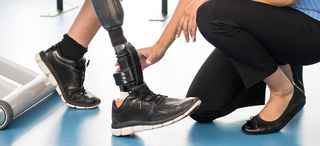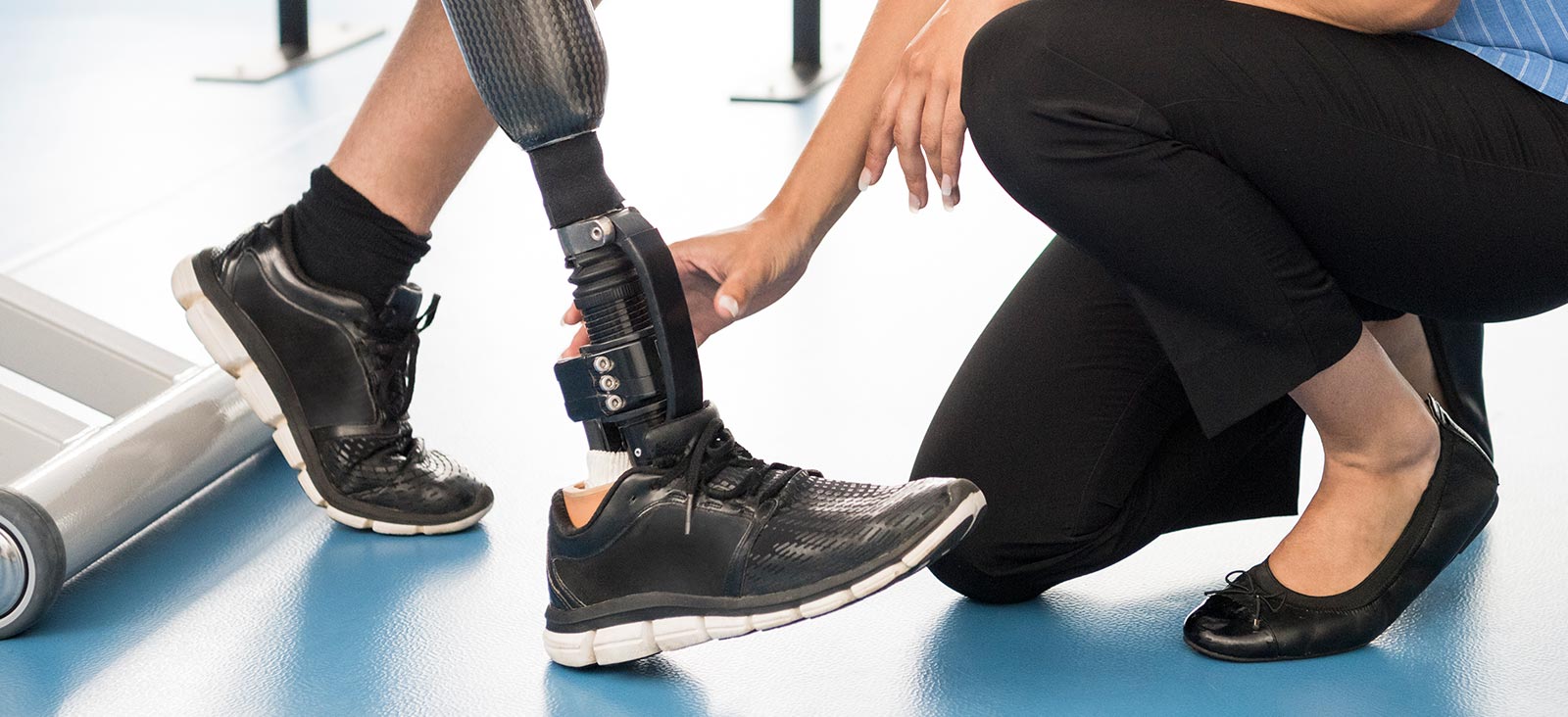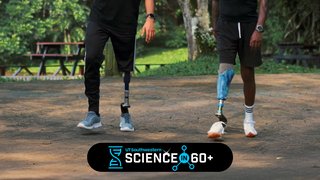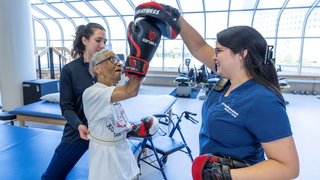Extraordinary Results from Attentive Care
A variety of diseases and accidents might require the amputation of a body part or limb. Traumatic injuries such as those sustained in an automobile accident or a severe burn are the most likely causes of amputation in patients younger than 50. For people over age 50, the leading causes of amputation are related to diabetes and peripheral vascular disease, a condition caused by atherosclerosis (hardening of the arteries).
The rehabilitation specialists at UT Southwestern work attentively with patients to achieve the best possible results from an artificial arm or artificial leg. We offer specialized rehabilitation expertise for upper- and lower-limb amputations, as well as multiple amputations. Persons who have an amputation who have been a part of our program have achieved extraordinary results in their rehabilitation, whether the goal was to return to driving a car or participating in sports and other activities.
Treatments
The occupational, physical, and recreational therapists at UT Southwestern provide the specialized care and treatments needed to address each patient’s specific situation.
Advancements in the development of prostheses, such as the use of ultralight materials, have enabled amputees to lead remarkably versatile lives.
For patients for whom amputation is necessary, our specialists will thoroughly discuss all options and prosthetic devices available. In addition, individualized exercise programs to strengthen the appropriate muscle groups will help maximize a patient’s ability to effectively use the artificial limb and regain a normal lifestyle.
Treatments and services we provide include:
- Amputation: Removal of a limb
- Amputation rehabilitation: Rehabilitation after the removal of a limb to strengthen the body and maximize its effectiveness
- Angiography: Imaging that allows physicians to see the inside of blood vessels and organs
- Blood pressure test
- Diabetes management
- Duplex ultrasound: Test that measures blood flow in veins and arteries
- Managing phantom pain or sensation (pain that comes from a part of the body that’s no longer there)
- Prosthesis: Artificial body parts, such as hands, feet, arms, and legs
Support
We believe that family members play an integral role in rehabilitation, and our specialists work diligently to provide families with the information needed to promote recovery. In addition, our medical staff extends a wide variety of services to families, such as psychological counseling, support groups, and educational programs that address their questions about amputation and prostheses.






